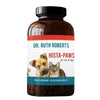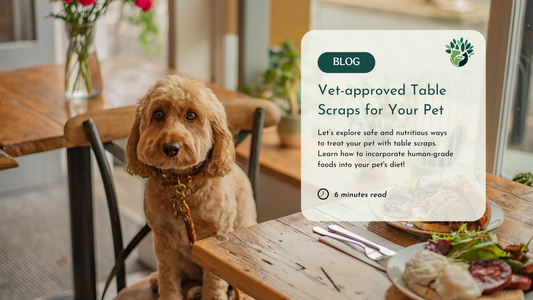My Journey to Heal Fibromyalgia and Inflammatory Bowel Disease
Did you know that you really do have power over fibromyalgia and inflammatory bowel disease?
Many of you who've been following me for years now I've had some fairly serious health issues over the years but many of you may not know that in 2006, I was diagnosed with Fibromyalgia and Inflammatory Bowel Disease
How I cured my Fibromyalgia and Inflammatory Bowel Disease naturally?
First of all, I knew that fibromyalgia had a certain trajectory as far as conventional treatment was concerned. And it wasn't very pretty. First conventional doctors put you on pain medications, usually non-steroidal drugs, and then narcotics, over the years, certain types of antidepressants have been developed, especially fluoxetine or Prozac which was relabeled as Sarafem.
I've seen too many of my clients come in and literally over months turned into addicts to narcotic medications.
So I knew that I did not want to go that route. I was also tired of the daily pain, fatigue, and lack of joy in life. I kept working brutal hours because I had to in my practice. I literally had to put ice packs on my back and shoulders in order to keep working, I had to have my assistant help me stand up from the floor when I was seeing patients.
Finally, I got to the point where I could endure the suffering no longer, and I sold my first practice in order to start to take care of myself better.
A few months before that, I had met a functional medicine doctor. This was a relatively new concept, but I knew what the other pathway was, and frankly, I had nothing to lose. The first thing he talked to me about was the fact that I was eating a standard American diet. This was high in processed carbohydrates, sugars, and fast food.
He explained to me the relationship between this highly processed food or Frankenfood and chronic inflammation.
So that honestly was step one. Starting to change my diet. It was very difficult, and honestly, it took me three years to be completely consistent in not eating processed foods. But, I could feel the difference when I ate the standard American diet, and I did not. One of the things I didn't understand to start with was that corn also has a protein called the sine protein that can create chronic intestinal inflammation.
So I had stopped eating wheat and looked and switched that out for corn. It took me about a year to understand that that was also creating chronic intestinal inflammation. Bye-bye Tortillas.
The next step was to understand more about my gut function. I had had C-diff for the second time at that point, and then inflammatory bowel disease as a result of the CDF. My doctor told me that eating a less inflammatory diet would also help with inflammatory bowel disease. But a little bit later than that.
The other thing my doctor helped me understand was that aren't going to eat anti-inflammatory supplements such as high doses of omega-3 fatty acid, curcumin, ginger, but other culinary herbs, which I used liberally while I was cooking, As this was prior to being developed into supplements.
I also began receiving acupuncture treatments myself, as well as weekly massages. I started working with a personal trainer to improve mobility, flexibility, and strength. The massages were brutal because I was so painful, but it did help gradually reduce the intestinal inflammation. Also, I found an infrared sauna and started going to use it twice a week.
How do you fix Fibromyalgia and Inflammatory Bowel Disease naturally at home?
It became more and more clear that the real culprit was in my gut. I had relieved the symptoms somewhat of daily diarrhea, nausea, and cramping with changes in my diet. But once I took out processed carbohydrates altogether, the symptoms got markedly improved. Also, I found out I had intestinal parasites, it was dewormed. And the C-diff was treated and cleared once and for all.
Now I use conventional medicines to do this step, but it laid the groundwork for using high doses of probiotics, common things like heartburn TX to help heal the intestinal cells and recreate the mucosal layer safely, and I also went through a Biofilm breakdown protocol.
It was a lot of pills every day, but after about three months, I realized that the symptoms were getting better and better until finally, they disappeared about six months later. I also did several stool tests and food sensitivity tests and did a rotation and elimination diet.
So how do you call them and test them?
As I said, those symptoms were super brutal at times, and especially during the biofilm-breaking protocol, the symptoms would increase for a bit at a time. To calm things down, I would take adsorbents like activated charcoal nightly and they would help add soar, but some of the enterotoxins or poisons produced by the bad bacteria as they died off.
Also, I started pre-cooking my food, essentially making conscious soups that were already essentially predigested through thorough cooking, and eating those for every field for months on end. As my symptoms improved, I would try less cooked food, and if that created issues, I'd just go back to the soups.
Finally, about six months later I was back to eating regular food, three meals a day. In retrospect, if I had known now, what I know then what I know now, I would have started intermittent fasting.
Time-restricted eating and intermittent fasting have been shown to improve intestinal health and help repair the gut more quickly. Also, because your intestines and digestive system are resting for longer, there's less symptomatology. Intermittent fasting can mean a lot of things to a lot of people.
If this is something of interest to you, I'd suggest you start with a simple title restricted eating as researched by Dr. Satchin Panda, and start with 13 hours between the last time you eat for the day, and the first time you eat for the next day.
Once you gain comfort with this and the fact that occasionally you may experience some hunger rumbles, I think you'll find that your intestines calm down quickly and your symptoms are relieved more rapidly.
Currently, my intermittent fasting regimen is 18 hours without food, with a six-hour eating window. In all honesty, I had a relapse of fibromyalgia over the last year, which actually was more like just chronic fatigue at this time. But intermittent fasting and this type of eating window have made an enormous difference in about two weeks.
So how can I beat my fibromyalgia?
1. Take Enough RestHonestly, kind of here's what I did this time around. Step one was frankly to rest more, and while I am working, I use a Pomodoro timer that goes off every 25 minutes so that I take a five-minute break. So that's 15 minutes of working time per hour with two, five-minute breaks.
Most of the time I'll get up and move around, but for some the breaks, I will lie down for five minutes and take a short nap. These are very refreshing, and prevent me from being completely drained at the end of the day.
2. Keto Diet
The second step is to go back to the keto diet, meaning no carbohydrates as this seems to be what creates the majority of inflammation both in my body, my intestines and my brain.
3. Intermittent Fasting
The third step was to start doing intermittent fasting. Honestly, within three weeks, I went from having foods that trigger symptomatology, to being able to eat pretty much anything I want within that six-hour eating period. For instance, last week I had popcorn for the first time in over 10 years.
The next day, absolutely not a problem. Previously, I would have had brain fog, and inflammation in my feet, ankles, knees, hips, neck, shoulders, and hands. As well as some very uncomfortable intestinal issues. This time nothing. Hallelujah.
4. High Doses of Omega-3 Fatty Acids
Fourth, I cranked up the anti-inflammatory supplements. I'm taking over four grams of Omega 3 fatty acids per day. And interestingly for the first time in over 20 years, my cholesterol is under 265. The fascinating thing about cholesterol is that it is not necessarily associated with eating a high-fat diet. It is associated with your level of inflammation.
They also used the Omega test to measure my Omega-3 fatty acid levels, and I am in the upper levels of Omega-3 quantity within their red cells. I've also started taking probiotics, and have been able to take them for the first time in over five years. This time, I used a different protocol because frankly, I found better products.
I used Mega Beauty Powder for a month, started taking Megaspore Biotics first and a half a capsule daily, gradually building up to two capsules twice a day while taking the second jar of mega immune. And taking the double dose for several months, my GI symptoms are completely gone, my pain level is normal, is actually non-existent, and unless I have really overworked the day prior, I'm not having rebound days of fatigue like I used to.
In times past the year, I would work for seven hours a day, and be exhausted the next day. No longer. I’m happy to report.
Does turmeric Beat Fibromyalgia?
Many of you are familiar with turmeric and curcumin, and their ability to really cause inflammation and discomfort. And you may have noticed I left that out. The reason is that unfortunately, I developed intestinal sensitivity to it because I was taking so much of it.
Turmeric is a great natural anti-inflammatory. But what I found to be equally useful since I was reacting to it is a shot of apple cider vinegar every night, and ginger tea every evening as well. The ginger has the added benefit of improving many of the GI symptoms and relieving a lot of the gas cramping I was experiencing prior to the probiotics and gut-healing regimen I was kicking in.
If you are struggling with fibromyalgia, and inflammatory bowel disease, here are my suggestions. If you are eating the standard American diet, start there. Don't do everything because frankly, it creates food addictions, which are difficult to overcome. Start with one thing at a time, or look at programs like the whole 30, or paleo diet for your first steps.
If you are eating a lot of sugar or drinking soft drinks whether they are sugar-sweetened or artificially sweetened, honestly, start with that. Sugar is a known inflammatory agent, and the amount of relief you will feel once you remove that from your diet will be remarkable. The reason I said to remove the artificially sweetened beverage is this. Part of what happens with fibromyalgia and inflammatory bowel disease is insulin resistance and metabolic disease.
The artificially sweetened beverages and foods actually have the exact same effect as sugar itself. Meaning it causes the pancreas to create a lot of insulin, and because it believes you are eating something sweet, and you will need it to keep your blood sugar level modulated.
Because you have insulin resistance, meaning the cells can't take the insulin onto the receptors in order to remove glucose from the bloodstream, you end up with excess glucose in the bloodstream, creating damage to your tissues, and that damage has started through inflammation.
Once you have that down, come on and give yourself three to four weeks for this step. Often the most difficult. Once you have that step-down, then work on removing other processed foods from your diet, and eating only whole vegetables, cleats, grains, beans, etc.
If you can, work with a functional nutrition coach, and get some testing done to see what foods you're sensitive to, as well as the state of your microbiome. They can recommend targeted supplementation and develop a rotation and elimination diet for you to help speed up the process of intestinal healing, and resolve the leaky gut issue.
The next thing is exercise. I know you're really painful and the last thing you want to do is move. If you can just get yourself through it, the first several weeks, what you'll find is that your pain level actually goes down dramatically.
Lastly, use supplements to reduce your inflammation level. I can't overstate the importance of Omega 3 fatty acids, supplements like turmeric or curcumin, golden yellow paste, ginger, apple cider vinegar, and also arnica for direct pain relief. Also important is to develop a practice of meditation and gratitude. When you're in a group with fibromyalgia, every day and every day is painful, and you feel miserable, it's difficult to have a sense of gratitude.
Does fibromyalgia go away?
When I'm in this situation, I simply think about it till I make it. I write down the things that I am grateful for. And usually, they're very basic like I have a roof over my head, I have more than enough food to eat every day, I have pets that I love being, I have a wife that loves me, things of this nature, and then suddenly it becomes easier and easier to write more and more things that I am grateful for it in my life.
When I have been at my sickest, this has truly been what saved me. I would look at pictures of my life with Mary Jo and our pets, and remember that there were good times and that that is where I wanted to get back to.
Every day, It would get a little bit better. And then finally I found myself in a state of deep gratitude for what I do have. And magically, the discomfort, the pain, the brain fog became less important and over time, as the other actions I was taking took effect, the symptoms went away and I cured my fibromyalgia.
I'm Dr. Ruth Roberts, your pet's ally.
Dr. Ruth Roberts
DVM, CVA, CVH














